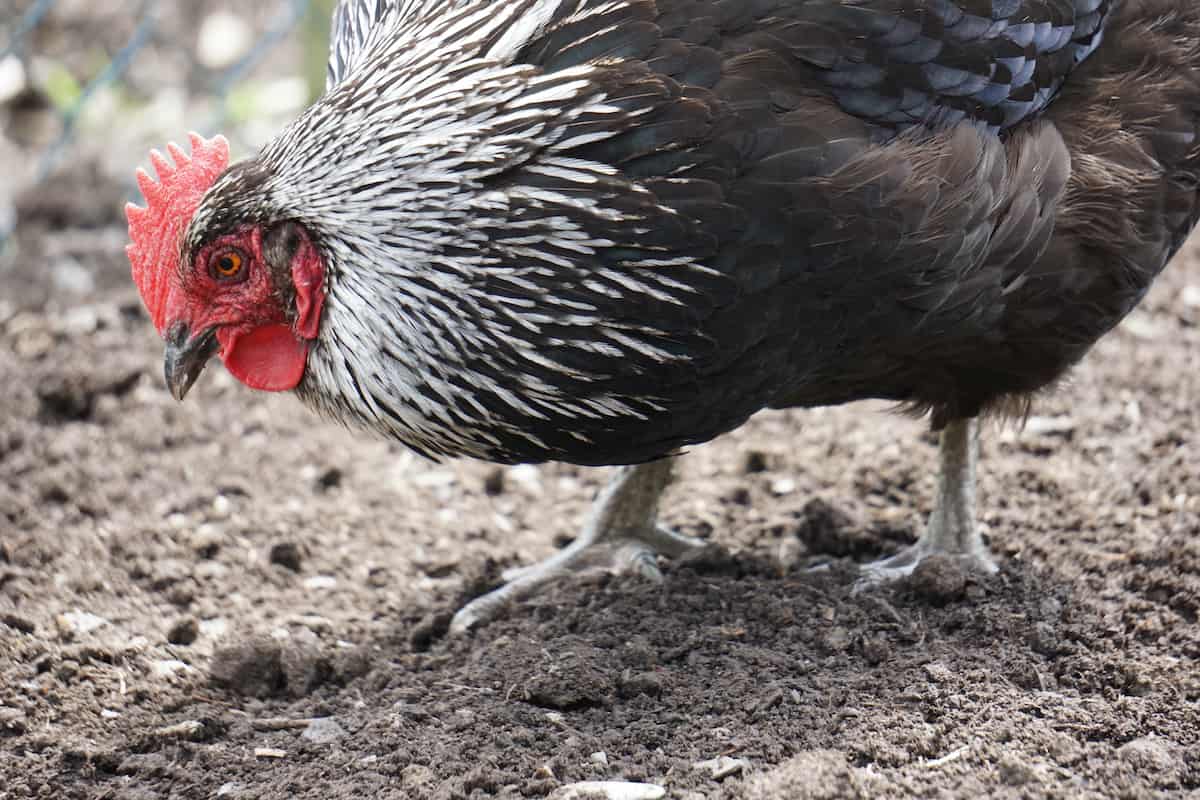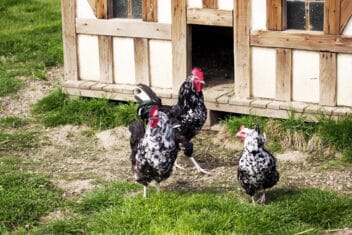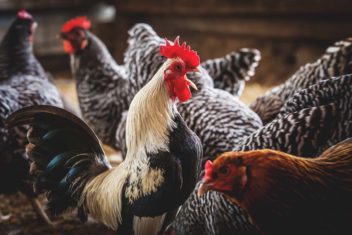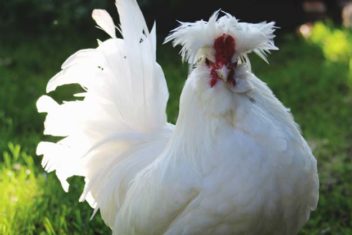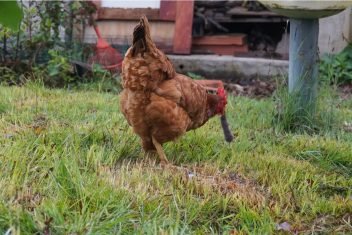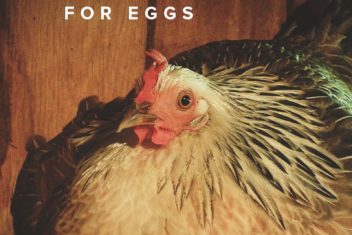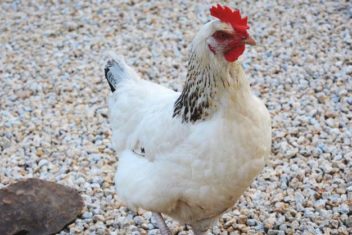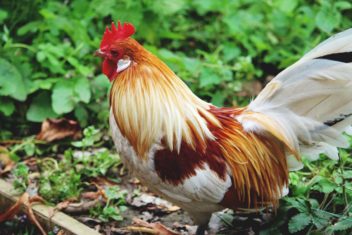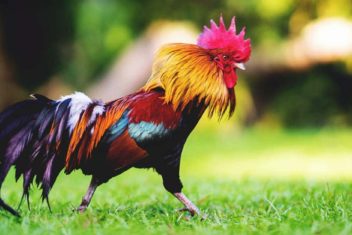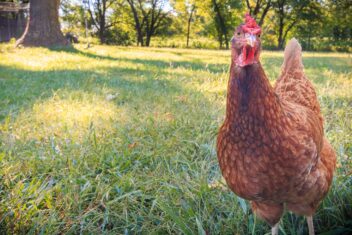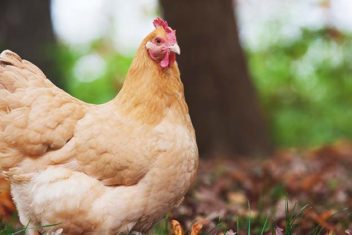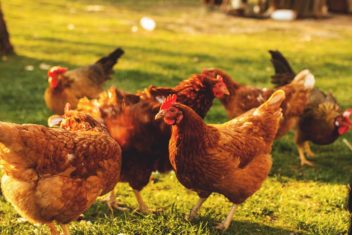I am not too proud to admit that I am a big wimp when it comes to the heat. As soon as temperatures rise above 70°, I try to stay inside as much as possible, ideally in front of a fan or air conditioner.
Of course, when you have animals to take care of, you don’t always get that luxury – nor do the animals themselves!
Staying cool isn’t just a matter of comfort for these animals, but of health. If your animals overheat, they can suffer from some pretty disastrous consequences, including heat exhaustion, lethargy, and, at worst, even death.
Luckily, there are some easy tips you can follow for keeping your chickens cool and make sure they stay comfortable during the hottest days of summer.
Choose the Right Breed
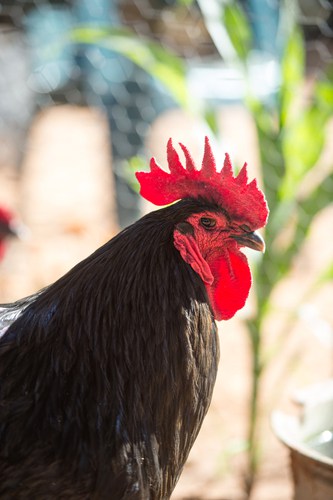
Preparing your chickens for warm, oppressive weather starts with selecting the right chicken breeds. Now, a word of caution with this. If you live in a part of the world where you only experience hot weather for a few months out of the year (such as where I live, in northern New York), you probably don’t need to select a heat-tolerant breed.
After all, you’re also going to need a chicken that can withstand very cold weather, too.
However, if you live in a climate that stays hot for much of the year, these breeds are some of the best:
- New Hampshire Red
- Leghorn
- Brahma
- Sumatra
- Minorca
- Easter Egger
- Plymouth Rock
- Orpington
- Lakenvelders
- Rhode Island Red
- Fayoumi
- Welsummer
- Appenzeller
- Campine
- Penedesenca
A few others to consider are Sicilian Buttercups, White Crested Black Polishes, Turkens, and Anconas.
You’ll notice that a few of these chicken breeds are also notoriously cold-tolerant, like New Hampshire and Rhode Island Reds. Others are Mediterranean breeds, like the Penedesenca, that don’t do well in cold weather. Choose wisely.
In general, birds that are small and lightly feathered (as well as those that tend to be flightier by nature) are generally better suited for hot weather. Heavy meat breeds, on the other hand, have a harder time shaking off the heat. When it comes to raising fast-growing broiler birds, know that you can raise them during the summer heat – but you will need to pay extra attention to water, shade, and food at all times.
Ultimately, a lot of a bird’s heat tolerance comes down more to its individual disposition than the actual breed, too. Some birds are just naturally predisposed to being heat-sensitive, while others thrive in the sun.
However, if you’re looking for a quick list of chicken breeds to avoid in the heat, you will want to be careful raising Australorps, Jersey Giants, Cornish Crosses, and Wyandottes. All of these are reportedly less hardy in the heat than other breeds.
Provide Shade
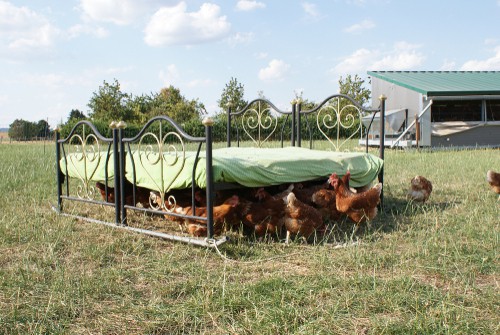
Shade is absolutely essential when it comes to keeping your chickens cool in the summertime heat. You can hang a few tarps to provide artificial shade, or even consider designing your chicken coop so that it’s elevated a few feet off the ground. That way, your chickens can crawl underneath to escape the hot sun.
Fresh, Clean Water
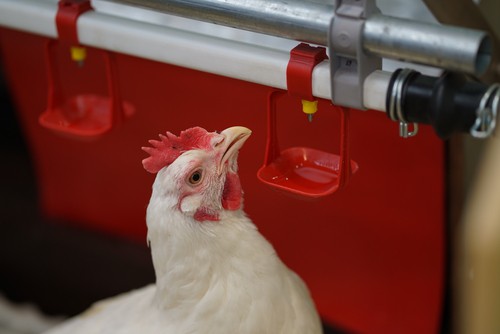
As with all creatures, water is absolutely essential when it comes to staying cool. Your chickens need fresh, clean water throughout all the seasons, but especially at the extremes (summer and winter). In very cold weather and very warm weather, chickens need more water to help sustain themselves and regulate their body temperatures.
Make sure they have constant access to water. Don’t just put out a pan a couple of times a day, but make water readily available instead. Put water inside the coop as well as inside the run. If you can, put one source of water beneath some shade, too. You can never have too much water!
Unfortunately, chickens aren’t always the brightest when it comes to their water, either. They tend to forget that they need to drink, so if they don’t see a source of water nearby, there’s a chance that they won’t remember to drink. Make sure waterers are positioned where your chickens can find them!
Frozen Treats
You love ice cream and popsicles when it’s hot out, don’t you? Well, chickens love their frozen treats too! Give your chickens some frozen vegetables and fruits when it gets really hot out in the afternoon. They’ll enjoy munching on the frozen treats (which can provide a lot of nutrition, too) and you won’t have to worry about them overheating.
All you need to do is fill up a bag with tasty snacks like apple peels or cucumber rinds. Toss the bag in the refrigerator and you can give the treats to your chickens on any warm day.
Don’t Limit Them to the Coop
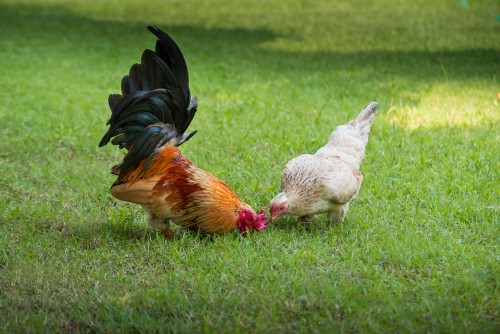
Summer is not a good time to try and coop train your birds. Unless you plan on setting up large box fans inside your coop (which isn’t always a great idea, since they present a fire hazard), you should avoid keeping your chickens locked inside all day.
Not only will your chicken coop get stinky and dirty – fast – but it is going to be really tough for them to stay cool. That’s especially true if the air tends to stay stagnant inside the building.
Give Them a Bath
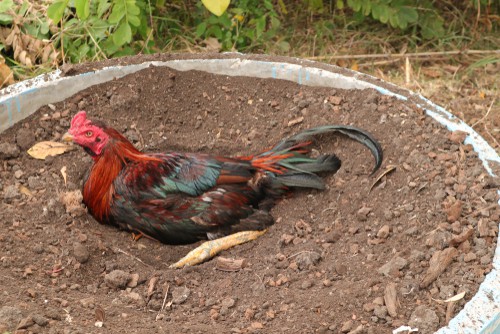
Well, not a real bath. One easy way to cool your chickens down is to put a kiddie pool out for your birds. Your chickens can stand in the water when they’re hot. You can also install sprinklers or misters in your chicken run, which will help your chickens stay cool (and water any grass or plants you have growing there, too).
Dust bathing is just as essential and is a way for chickens to cool down too, by throwing cooler soil onto their feathers.
Good Ventilation and Air Flow are Key
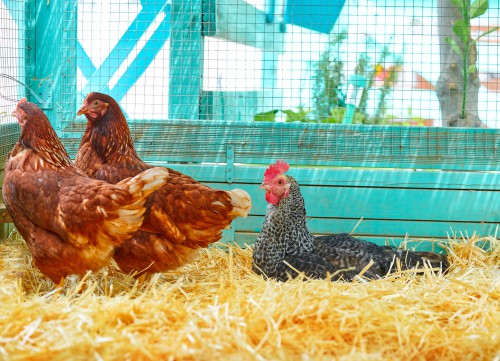
Make sure your chicken coop is airy and well-ventilated in hot weather.
When you’re raising chickens, ventilation and air-flow in a coop is key. This is especially important if you need to keep your chickens locked up for an extended period of time. However, even if you don’t, make sure your chickens are provided plenty of good airflow and ventilation. Otherwise, they could overheat.
Stagnant air is deadly air, so keep the doors, windows, and vents open and free from debris.
If you do decide to use a fan in your coop, make sure it’s one that’s designed to be used in an agricultural setting. That way, you won’t have to worry about it overheating or worse, catching on fire when it fills with that nasty “chicken dust” that seems to constantly permeate a barn!
Keep it Clean
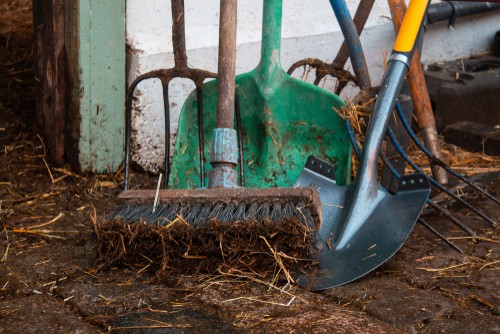
Of course, keeping your coop clean isn’t something you should only worry about in hot weather. However, in hot weather, it’s arguably more important to keep your coop well-maintained. As the temperatures rise, the coop can rapidly become a breeding ground for dangerous parasites and diseases.
If you’re using the deep litter method of bedding, try to apply fresh bedding more often than you normally would. Otherwise, clean your coop out on a regular basis and make sure things are neat and tidy.
The side benefit? It will smell a lot better once the mercury begins to rise, too.
There are some who believe that deep litter produces more heat, so if this is what you use, consider alternative options, or give your chickens space to roam.
Don’t Worry About Panting or Other “Cooling” Behaviors
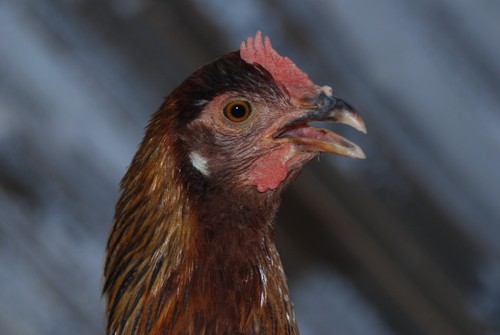
Don’t stress if you notice your chickens panting – unless it’s excessive, this is normal warm-weather behavior.
Chickens aren’t like us. Like pigs, they cannot sweat, so they have to find other ways to cool their overheated bodies. One of the most common ways they do this is to fan out their feathers and pant to release a bit of heat.
These are mostly normal behaviors, so if you see your chickens doing either, don’t panic. If these signs are accompanied by other troublesome behaviors, like a failure to eat or move very much, you might want to take immediate steps to get them cool.
Avoid High Fat Foods
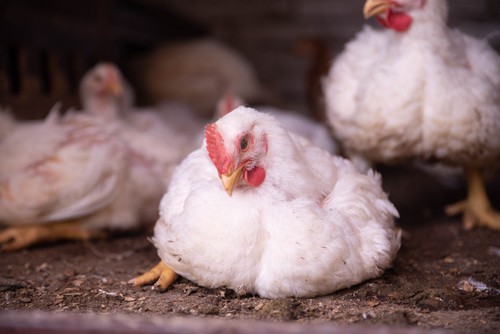
Be careful what you feed your chickens in warm weather.
High-fat foods, like corn and sunflower seeds, are great for cold weather when your chickens can use the extra energy to digest them. They’ll warm up as their bodies work to process them down. However, for the same reason, they should be avoided in the heat.
Watch for Signs of Heat Distress
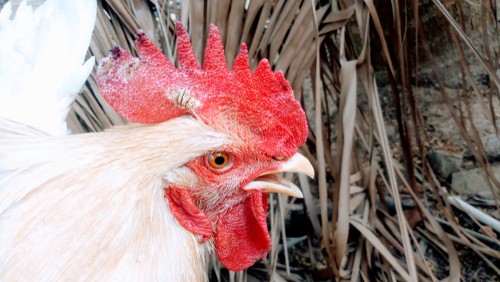
Know the signs of heat distress, to prevent problems in your flock.
As with all animals, it’s important that you familiarize yourself with the signs of heat distress in your backyard flock so that you can act quickly should a chicken fall ill. Signs of heat stress can vary among chickens, but usually, you’ll notice symptoms such as:
- Excessive panting or labored breathing
- Pale or otherwise discolored combs and wattles
- Seizures and convulsions
- Diarrhea
- Loss of appetite
- Sharp decline in egg production
- Thinning of eggshells
- Staggering, “drunken” gait
- Feathers erect
If you notice any of these signs of heat exhaustion, provide your birds with immediate medical attention. Failing to act can lead to death.
Ultimately, keeping your chickens cool in the heat comes down to exercising a bit of common sense and good animal husbandry. Summer won’t last forever, so make sure you take the extra time now to keep your chickens healthy and happy.
